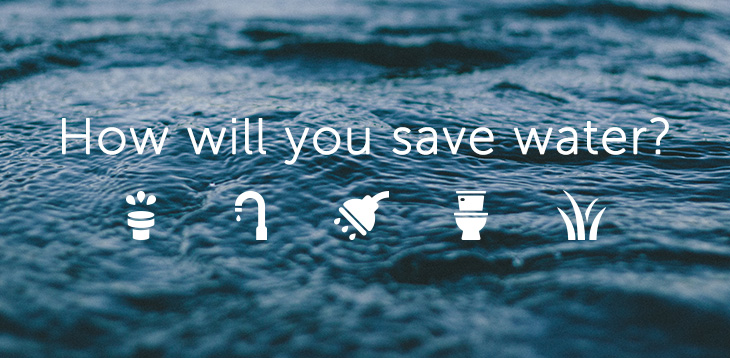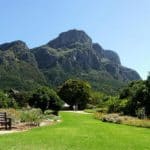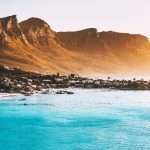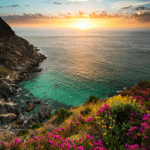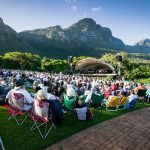With dams at their lowest in a long time, water restrictions in Cape Town may be a reality this summer. In fact, many parts of the Western Cape, along with Gauteng and KwaZulu-Natal are already putting restrictions into play. What exactly does this mean for homeowners, holidaymakers and water conservation in general, and what do you need to know about restrictions?
To understand why water restrictions in South Africa are taking place in 2015, it is important to first understand the effect that overall weather conditions play in water consumption. A ‘dry year’ may sound like something you hear rural farms complain about, with a lack of rain during peak rainy season of the area in question leading to a shortage of water in supplies such as dams, reservoirs and bore holes. For agricultural regions, such as the Western Cape’s fruit and livestock growing areas, low water supply can be disastrous. For everyday folks, water shortages can be equally scary – not only do we need water for crops; we need it to keep dams full enough to use for fires, sewage, drinking water and tap water.
As such, water shortages affect ALL of us – rural, urban and otherwise. From the Cape Winelands to the City Bowl, when water restrictions are put into place, it means that every single one of us needs to be responsible for our own water use, so that we can save every precious drop.
Western Cape Water Restrictions 2015
Western Cape water restrictions were recently put into place in November 2015 in some parts of the province – currently rural and farming regions. These may extend to urban areas such as the Cape Town city area closer towards the peak of summer if dams are still low. During water restrictions, the following terms are put into place:
– Gardens may not be watered between 09h00 and 18h00.
– Sprinklers may also not be used during this time.
– Cars may not be washed during this time using a hosepipe connected to a tap.
– Anyone who is caught using water through a hosepipe or sprinkler during these times will be fined.
Cape Town Water Conservation – Tips & Ideas
Even if there are no Cape Town water restrictions for 2015 in the urban areas, water remains one of the most valuable, vulnerable resources of our planet. So much in fact, that it is often called ‘blue gold’. Manufacturing, fuel sourcing, production, farming and many other industries use large volumes of water to produce the items we eat and use every day, all over the world. Added to that is the rise of bottled water, which is equally water intensive to produce – especially when bottled in plastic.
Saving water is therefore critical – no matter where we live or whether there are shortages in place.
Some ways that we can all make a difference to save water include the following:
1. Save ‘grey water’ used from kitchen sinks and bath tubs to use on the garden. Everyday dish washing liquids and soaps are not harmful to the garden, making this water safe to use on flower beds and lawns.
2. Put up a water tank to catch rainfall from gutters. This is hands down one of the best ways to harvest rain water to use for home and garden. Costs vary according to the size of the tank, but the investment is one that gives returns year after year.
3. Where possible, choose shower over bath. I love a long soak as much as anyone, but showers use a lot less water. If you do bath, instead of letting the water run out the drain, scoop it up into a bucket and use as grey water as per our first tip.
4. Upgrade to an eco flushing toilet, or place a brick in the cistern. Adding a brick will help reduce the amount of water in the cistern without affecting the toilet’s ability to flush. If you can afford to do an upgrade, look at adding an eco flushing device to vary the amount of water being used.
5. Be water savvy. I admit to being careless at times – letting water run while I put toothpaste on my brush, letting the shower run until the water heats… it is all too easy to forget how valuable water is, until we are forced to realise how much we need it, that is. Join me in being water savvy every day, all day. Watch those drips, avoid running water unless you are using it, use less water to wash dishes. Get a water filter and make your own spring water instead of buying bottled water. Do whatever you can to save water.
…
Let us not wait until we really have a drought or major water shortage to make a change. If you and I do these small changes, and encourage others to do them too, we may be able to save water and ensure that our planet continues to be nourished while we continue enjoying luxuries like swimming pools.
What do you say… are you keen to join me in this mini Cape Town water conservation challenge? Share your thoughts below and let us know if you’re in!


